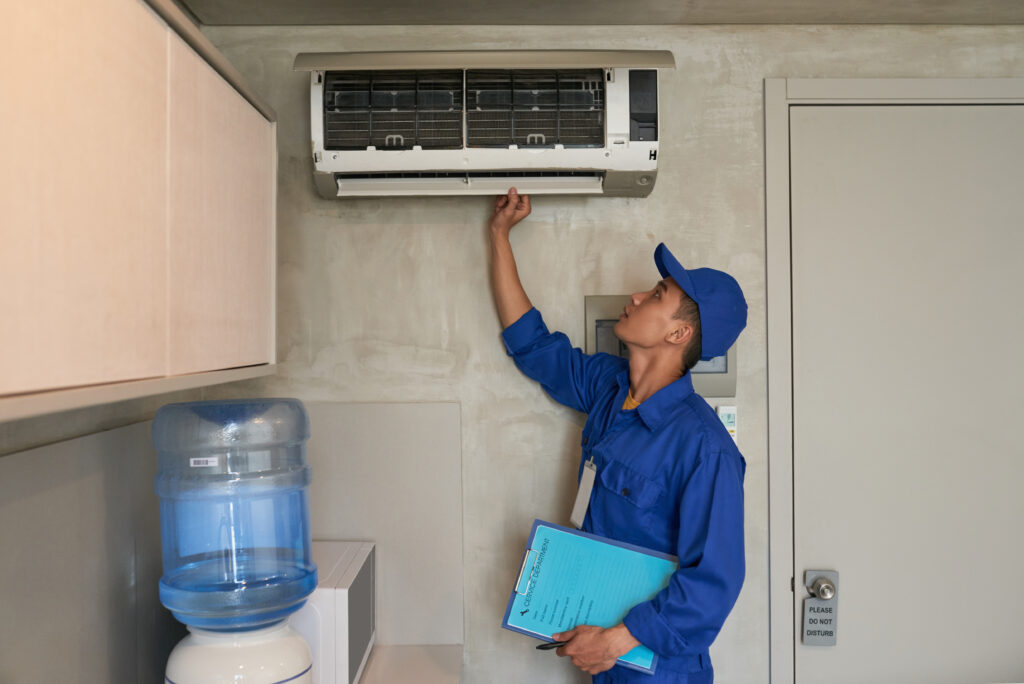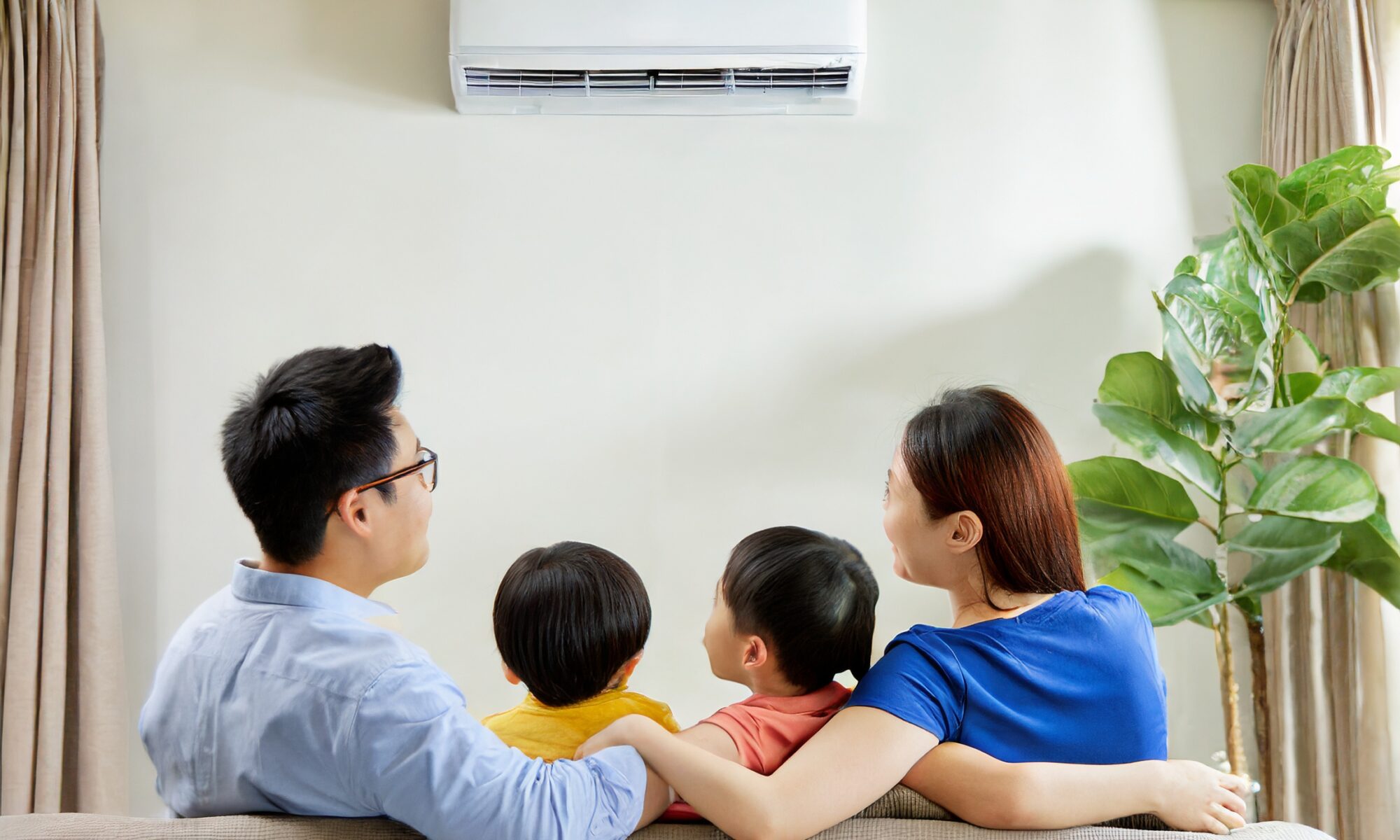In Singapore’s tropical climate, aircon usage is practically essential. However, running your aircon frequently can lead to surprisingly high energy bills if you’re careful. Small mistakes in maintenance or usage habits can significantly impact costs, making it more expensive to keep your home comfortable. In this guide, we’ll cover common mistakes that many Singaporeans make with their aircon and provide tips on how to avoid them to keep bills under control.
1. Setting the Temperature Too Low
Many assume that the lower the temperature, the faster the room cools. However, setting your aircon to an extremely low temperature, like 16-18°C, doesn’t speed up the cooling process; it just makes the compressor work harder to maintain a colder temperature. Not only does this consume more energy, but it also shortens the lifespan of your unit.
The recommended temperature for energy-efficient cooling is around 24-26°C. Setting your aircon within this range balances comfort and energy savings. Each degree lower can increase your energy consumption by about 6-8%, so avoid the temptation to set the aircon too low.

2. Not Cleaning or Replacing Air Filters Regularly
Clogged air filters are one of the biggest culprits of high energy bills. When filters are dirty, airflow is restricted, and your aircon has to work much harder to push air through the system. This decreases efficiency and forces the compressor to run longer, driving up energy consumption.
Cleaning or replacing your air filters every month can significantly improve aircon efficiency. If you have pets or live in a dusty area, consider cleaning them more frequently. For those with reusable filters, a rinse with water and mild soap can do wonders, while disposable filters should be replaced to maintain optimal performance.
3. Ignoring Regular Maintenance
Refrain from paying attention to regular aircon servicing is a common mistake that can lead to various problems, including higher energy bills. Over time, dust, dirt, and even mold can build up in the coils and ducts, reducing efficiency. Components like the evaporator and condenser coils are especially prone to dirt accumulation, which makes heat transfer more difficult and forces the system to use more power.
Hiring a professional for regular aircon maintenance ensures that all parts function correctly and efficiently. A well-maintained unit not only cools better but also saves up to 15% on energy costs. Annual servicing is generally recommended, though high-usage households might benefit from twice-yearly servicing.
4. Leaving Windows and Doors Open
One common oversight is leaving windows or doors open while the aircon is on. Even small gaps allow warm air to enter and cool air to escape, making your aircon work much harder to maintain the desired temperature. This constant influx of warm air disrupts the cooling process and increases energy consumption.
To avoid this, ensure that all doors and windows are closed tightly before turning on the aircon. Consider adding draft stoppers to doors and sealing any cracks around windows. This keeps your indoor space insulated and prevents your aircon from overworking.

5. Not Using Curtains or Blinds
Direct sunlight streaming through windows can quickly heat a room, forcing your aircon to consume more energy to keep the space cool. Many people overlook sunlight’s impact on indoor temperature, especially in rooms with large or west-facing windows. The sun’s heat can drastically increase the workload of your aircon, leading to higher bills.
Installing blackout curtains or blinds can help block sunlight during the hottest parts of the day. Reflective or thermal curtains are especially effective as they are designed to deflect heat. Using these reduces the cooling load on your aircon, which translates to energy savings and a more comfortable home environment.
Additional Tips to Reduce Aircon Bills
Beyond avoiding the five common mistakes, there are other strategies you can use to enhance your aircon’s efficiency and lower your energy bill:
Use a Ceiling Fan with Your Aircon
A ceiling fan circulates air within the room, allowing the cool air from your aircon to disperse evenly. With a fan running, you can set your aircon at a higher temperature, as the fan creates a wind-chill effect that makes the room feel more relaxed. This can help save up to 15% on energy costs.
Choose an Energy-Efficient Aircon Model
Modern aircons are designed with energy efficiency in mind. Look for models with a high Seasonal Energy Efficiency Ratio (SEER) or Energy Efficiency Ratio (EER) rating. Additionally, consider opting for an inverter aircon, which adjusts the compressor speed based on cooling demand. Although inverter models are typically more expensive upfront, they use less power and can save you money in the long run.
Keep the Outdoor Unit Clean
The outdoor unit of your aircon, also known as the condenser, can accumulate dirt, leaves, and debris over time. When blocked, the condenser’s ability to release heat is reduced, which can lead to increased energy usage. Consider hiring a professional to regularly inspect the area around the condenser and clear any obstructions.
Use Eco or Energy-Saving Mode
Many aircons come with an eco or energy-saving mode, which helps maintain a comfortable temperature without consuming as much power as the regular mode. This mode reduces the compressor’s workload by allowing the temperature to fluctuate slightly rather than maintaining a constant temperature. Using eco mode during less intense periods can help save on energy costs without sacrificing comfort.
Seal and Insulate Your Home
Good insulation is essential for maintaining the cool air within your home. Gaps around doors and windows allow cool air to escape, forcing your aircon to work harder. Seal any cracks or gaps around doors, windows, and electrical outlets. For added insulation, consider using weather stripping on windows and doors. Proper insulation ensures your aircon doesn’t waste energy trying to cool an unsealed space.
Monitor and Adjust Temperature Settings
Frequent adjustments to the thermostat can lead to higher energy usage. Many people lower the temperature drastically when they enter a warm room, thinking it will cool the space faster. However, this only leads to higher energy consumption without speeding up the cooling process. Instead, set the aircon to a comfortable temperature and let it gradually cool the room.
Regularly Inspect and Clean Air Vents
Dust and debris can accumulate in air vents, obstructing airflow and reducing efficiency. Every few months, check your air vents and clean them if necessary. Proper airflow allows your aircon to cool the room more efficiently, reducing the time it needs to run. Additionally, blocked vents can cause the compressor to overheat, leading to potential damage and costly repairs.

Final Thoughts
Optimizing aircon usage in Singapore’s hot climate doesn’t have to be challenging. By avoiding common mistakes and implementing energy-saving practices, you can significantly reduce your aircon’s impact on your electricity bill. Regular maintenance, keeping doors and windows sealed, and using simple energy-saving hacks like eco mode can make a noticeable difference. Consider scheduling annual servicing with a reputable provider to keep your unit in top condition and enjoy a comfortable, excellent home without worrying about skyrocketing energy costs.



You must be logged in to post a comment.